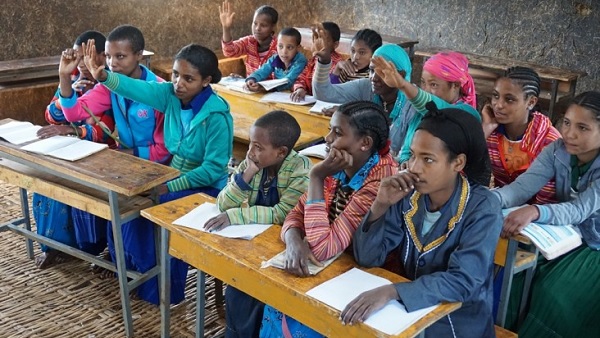
In a recent study, researchers from India, Ethiopia and the USA have investigated how education and early marriage are related by studying the cases of affected girls in India and Ethiopia.
By Arunita Banerjee (Research Matters)
Marrying off girls before they are eighteen years of age, also called early marriage, is a norm in many communities across the world. It is estimated that 15 million girls are married by the age of 18 each year in the world. India has the highest number of child marriages in the world with 27% of its girls married off early, albeit the practice has been declared illegal. In Ethiopia, two in every five girls are married before they turn 18. Early marriage has various social consequences, with discontinuation of education being the pronounced one. Girls are pulled out of school, married off and are expected to shoulder the responsibility of the household.
In a recent study, researchers from India, Ethiopia and the USA have investigated how education and early marriage are related by studying the cases of affected girls in India and Ethiopia. “India and Ethiopia are among nations with the highest rates of child marriage in the world and given their population size, this amounts to substantial numbers of affected girls in these nations”, says Dr. Anita Raj, Director of the University of California, San Diego’s Center on Gender Equity and Health, and the corresponding author of the study.
◌ ALSO: The Yellow Movement AAU: Speaking up for women and girls – empowering women (Ethiopia)
In this study, published in the journal BMC Public Health, the researchers have analyzed how early marriage and low income result in the cessation of education for these girls. They used data collected from 45 participants of two social outreach programs—Oromia Development Association (ODA), run in Oromia region of Ethiopia and Regional Initiative for Sexual Health for Today’s Adolescents (RISHTA), from Jharkhand in India. Both these programs educate participants about early marriage and associated health risks, contraception and family planning, and provide vocational training to help build better career opportunities for them.
The researchers found that girls education was often devalued in many communities as they believed that educated girls turn hostile to marriage and parents, and may engage in premarital sex, resulting in their expulsion from their communities. Many parents thought that such practices reduce the ‘value’ of the girl in the marriage market. The associated financial costs of education also acted as another barrier. There were also fewer career opportunities for well-educated women, further dissuading them from pursuing secondary education. Problems of poor infrastructure and harassment of school-going girls were found only in Ethiopia.
Read the complete story at Research Matters
